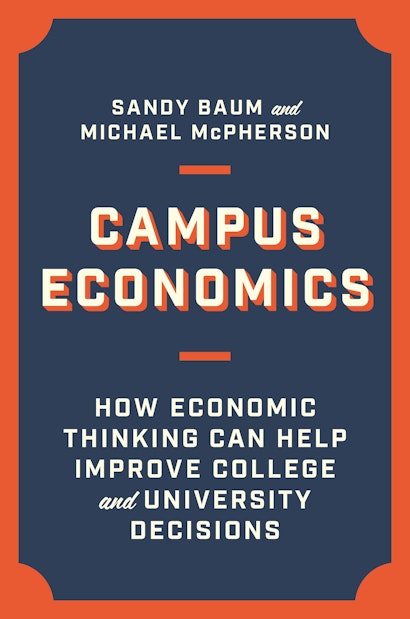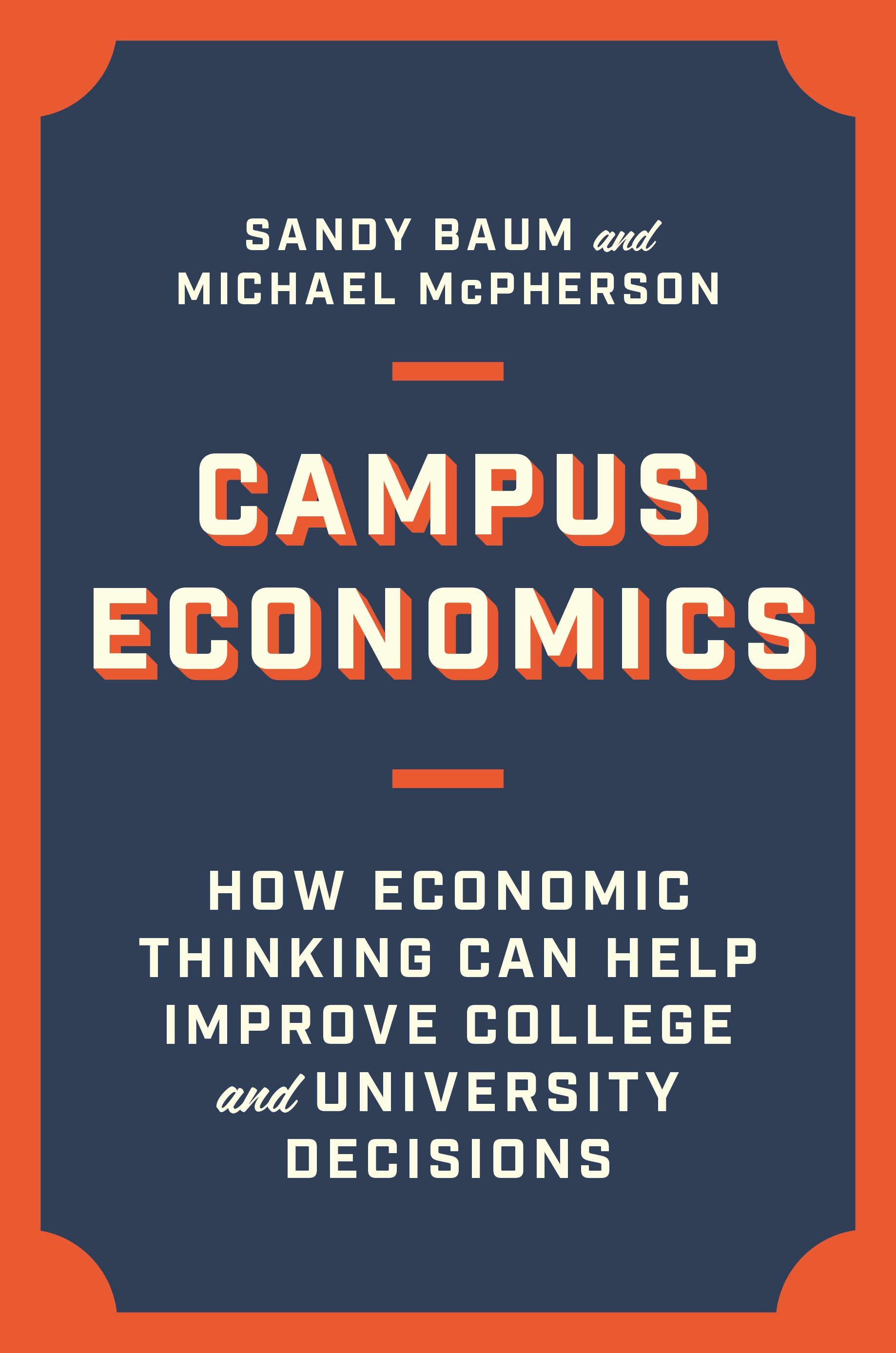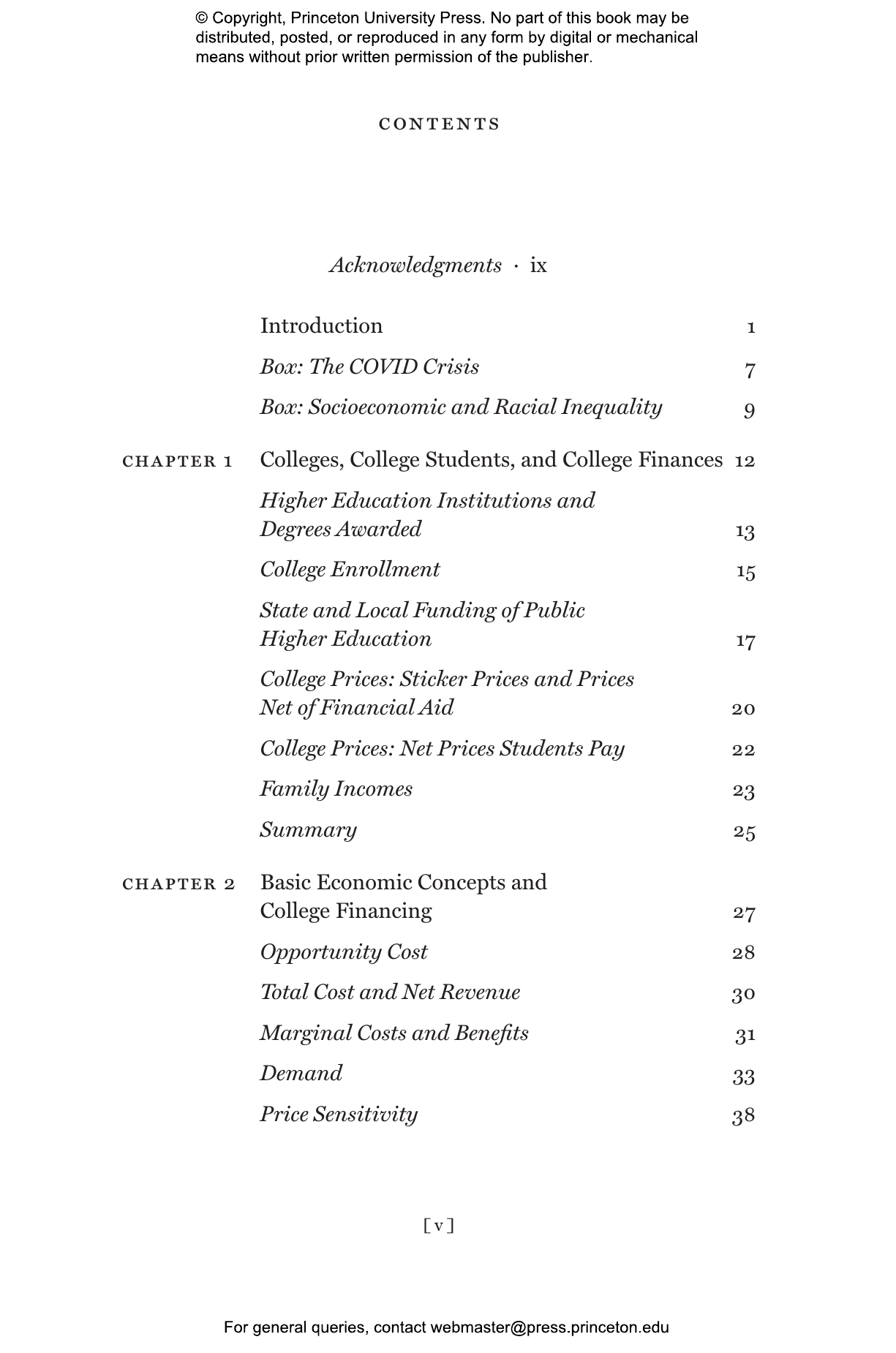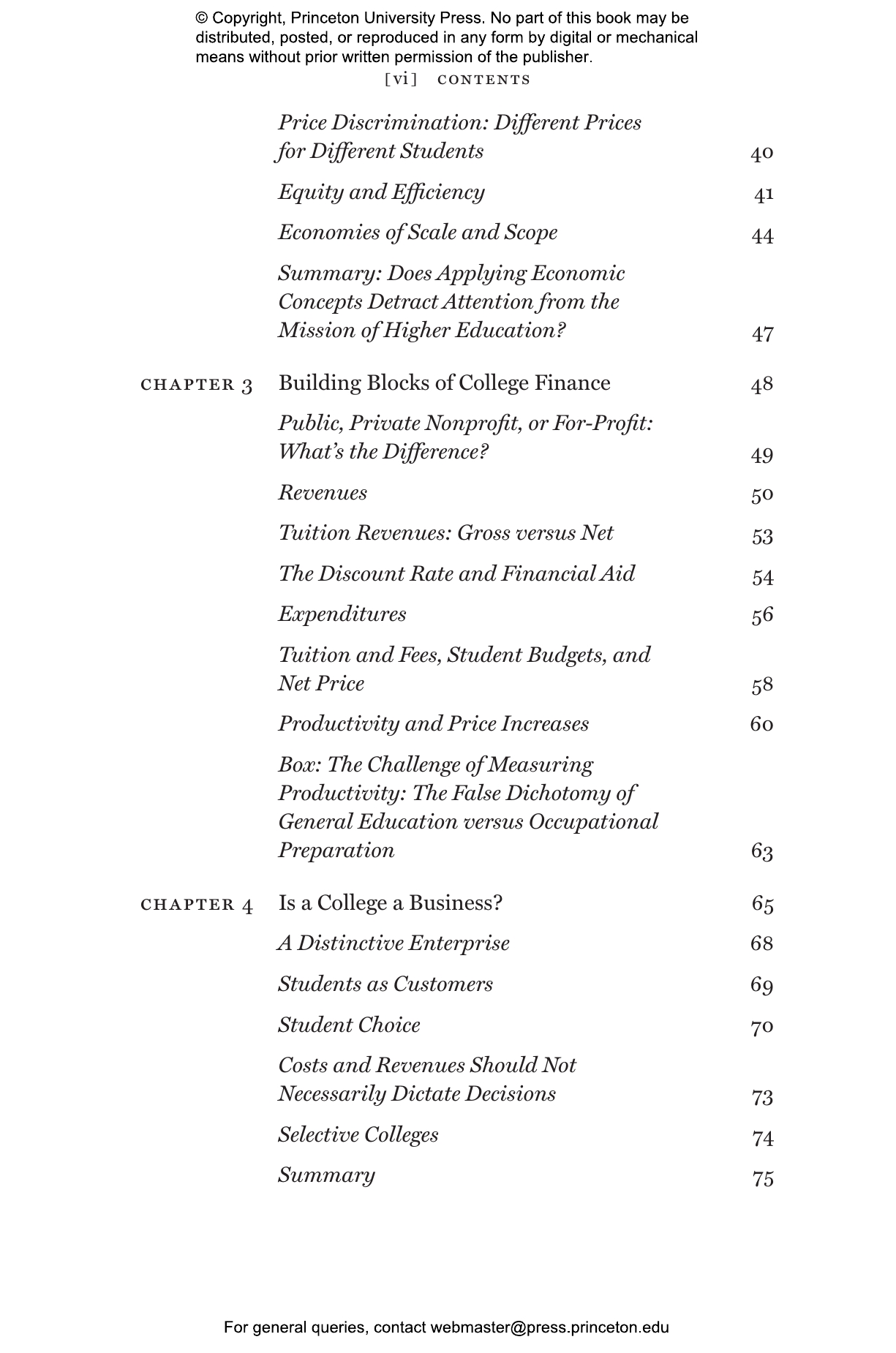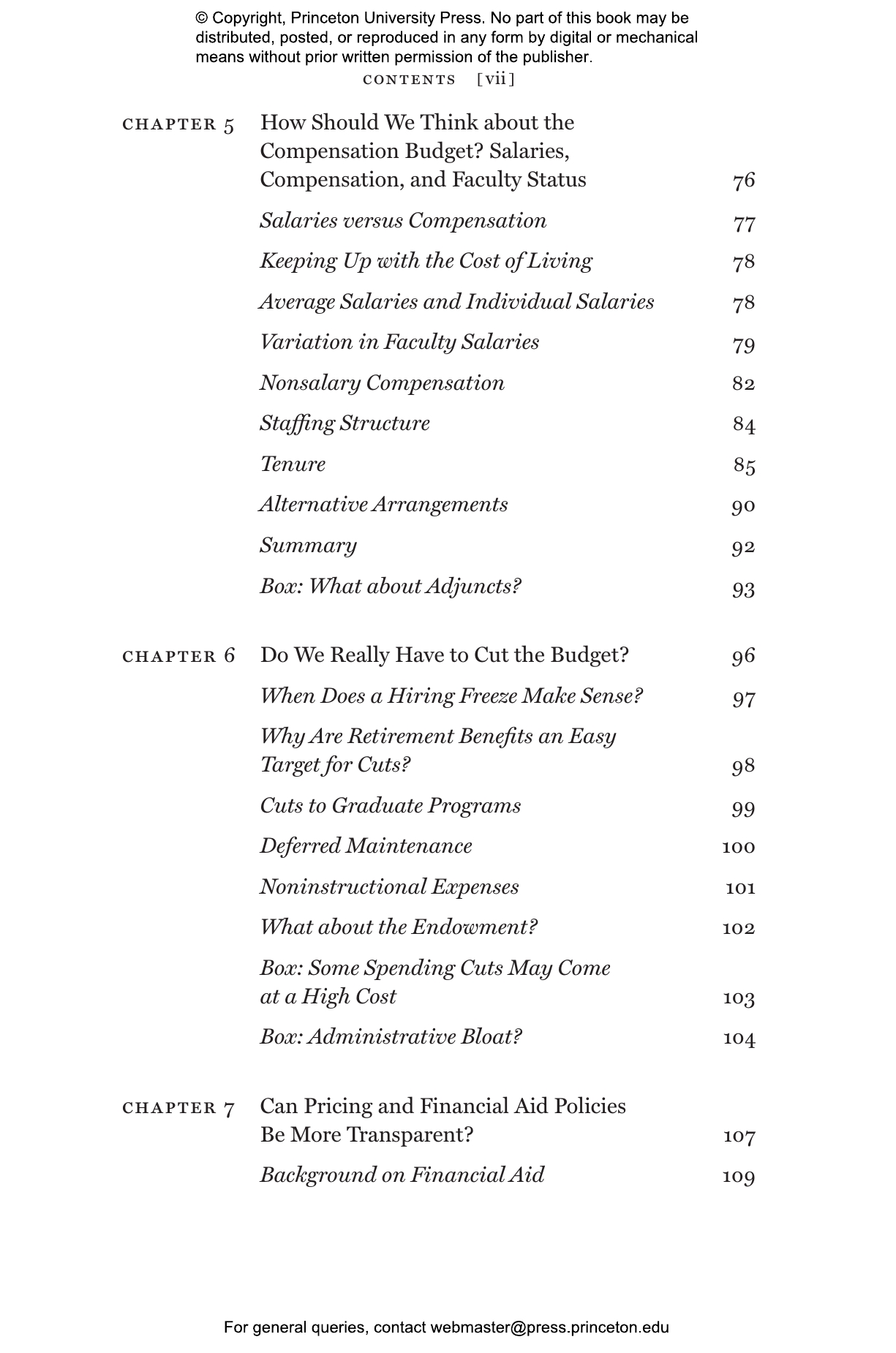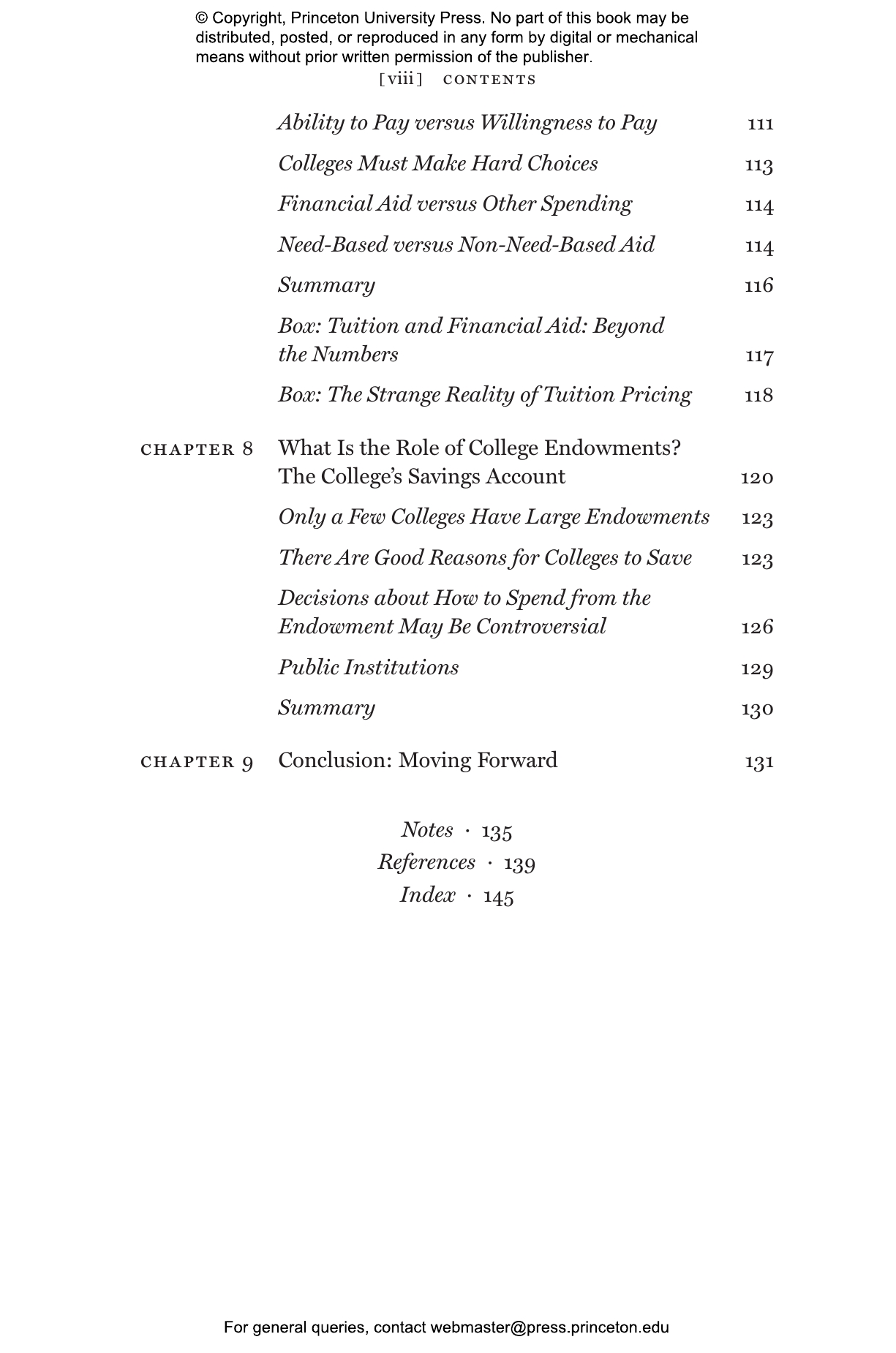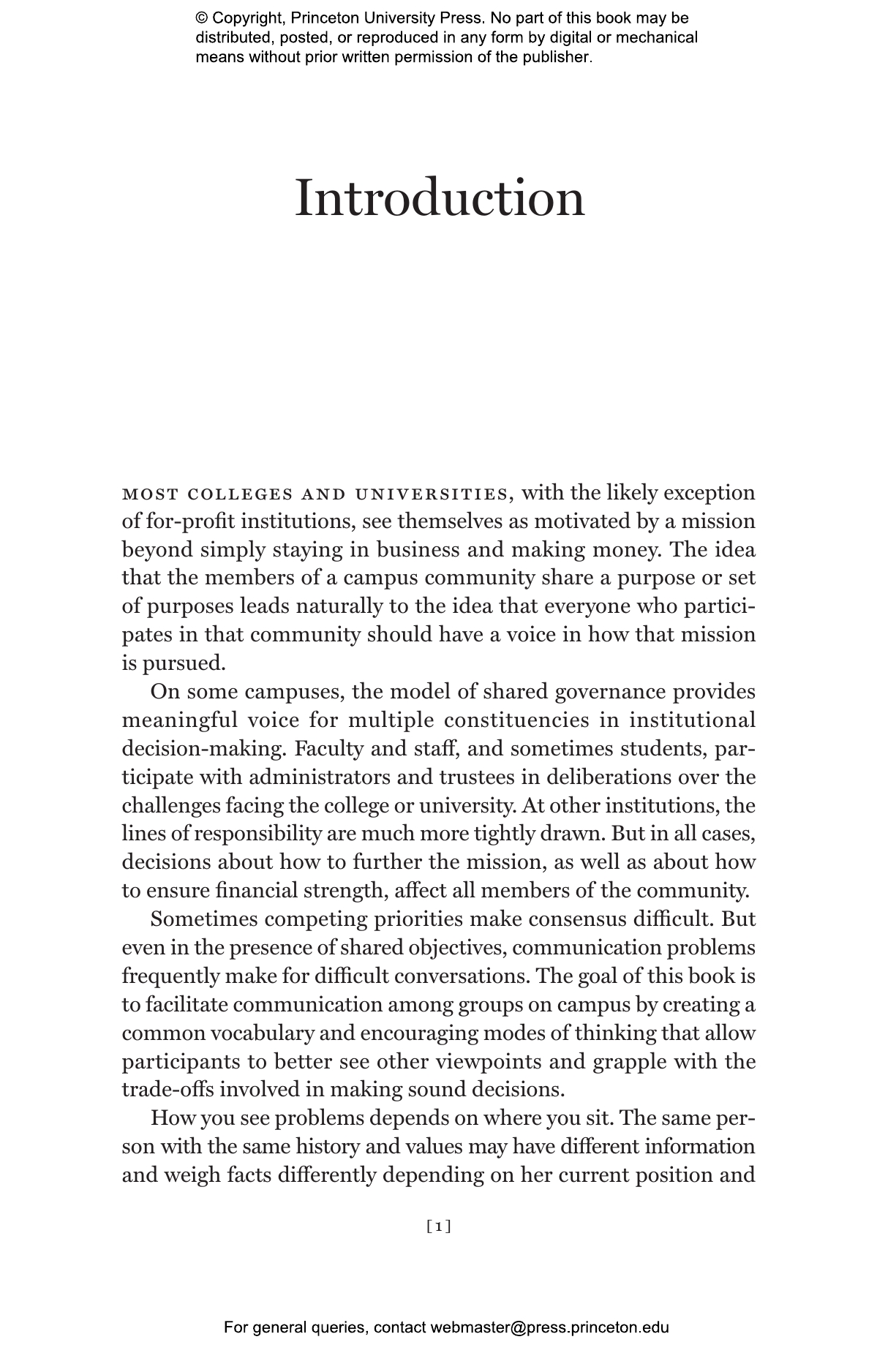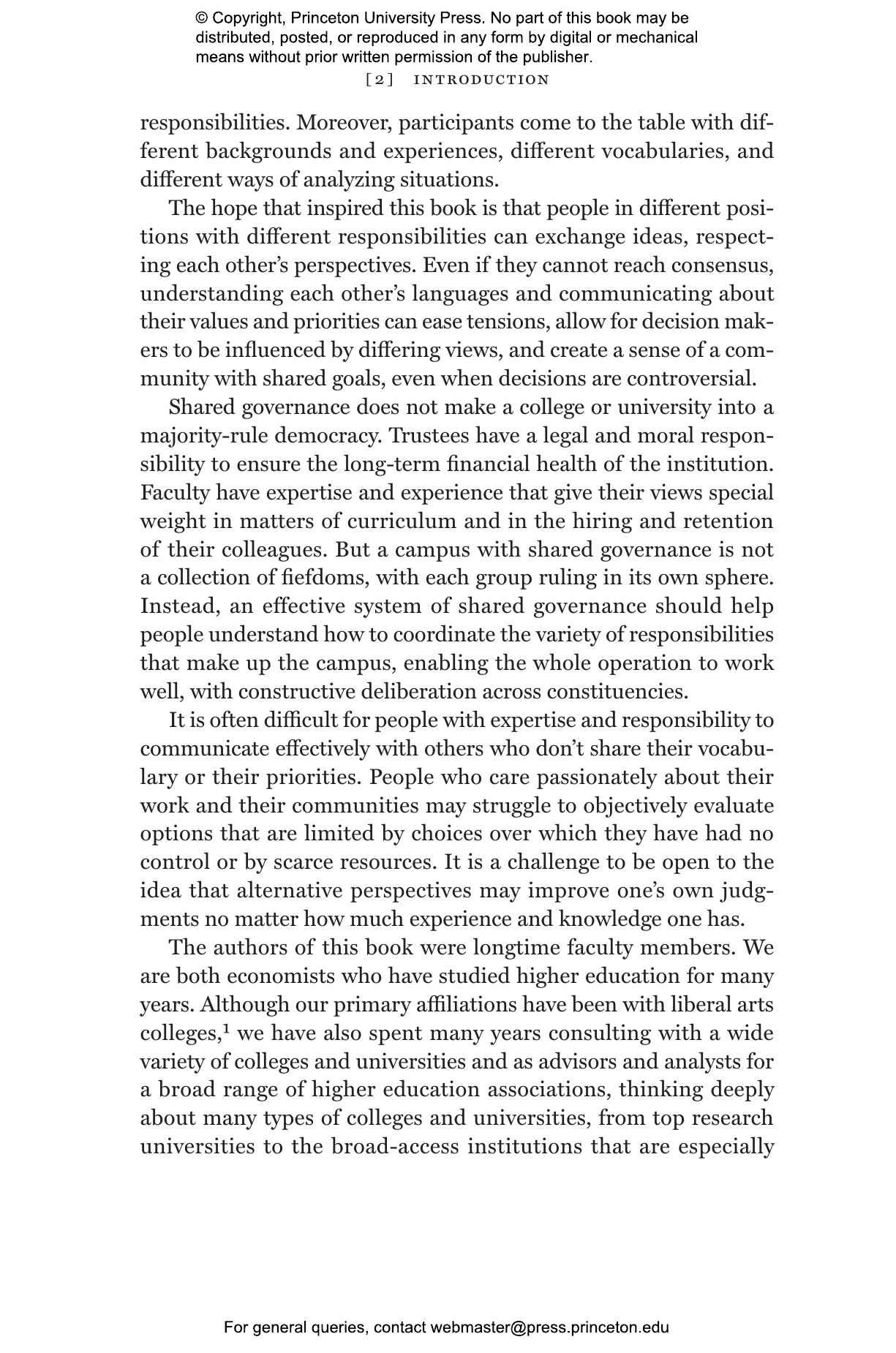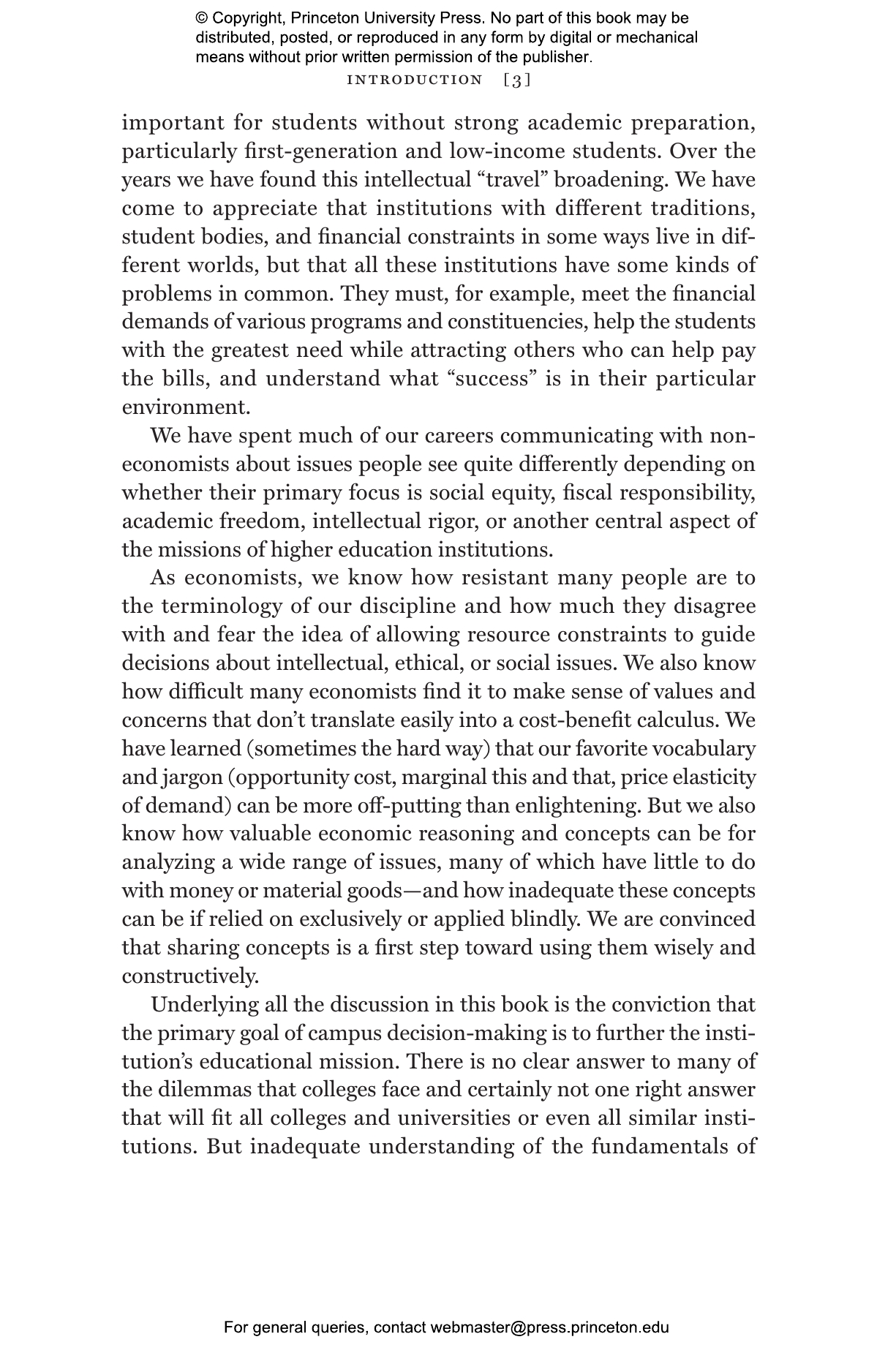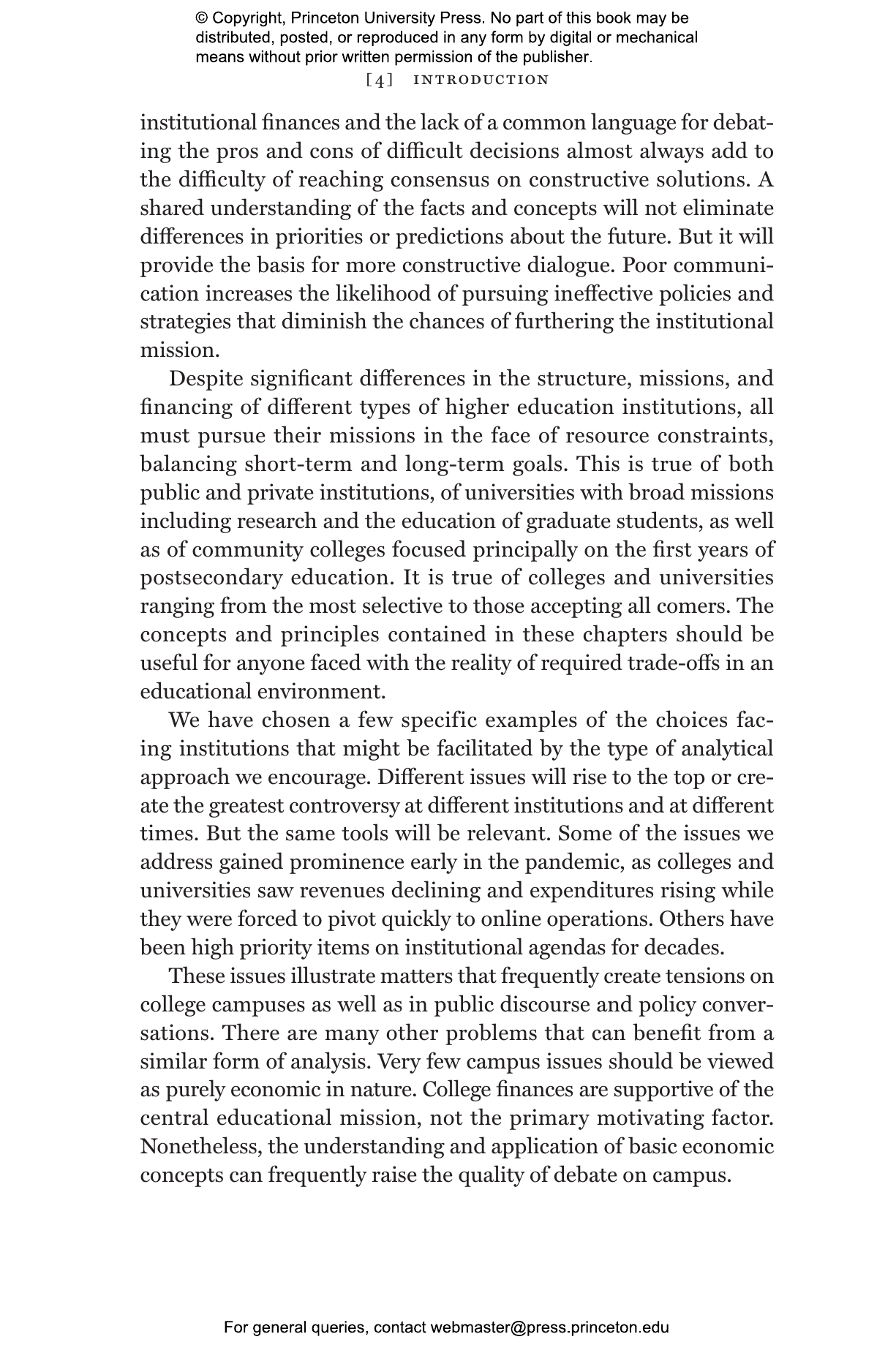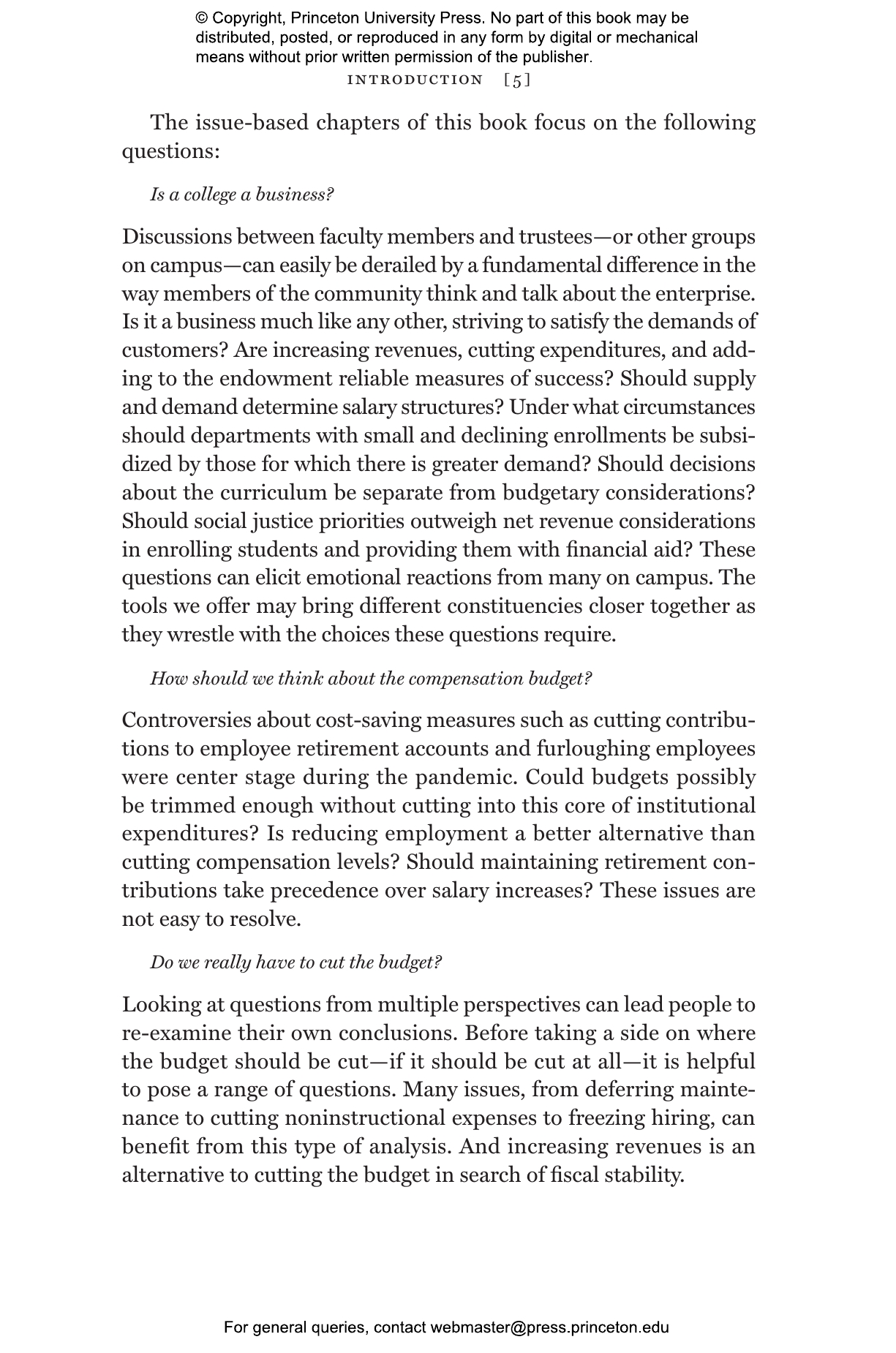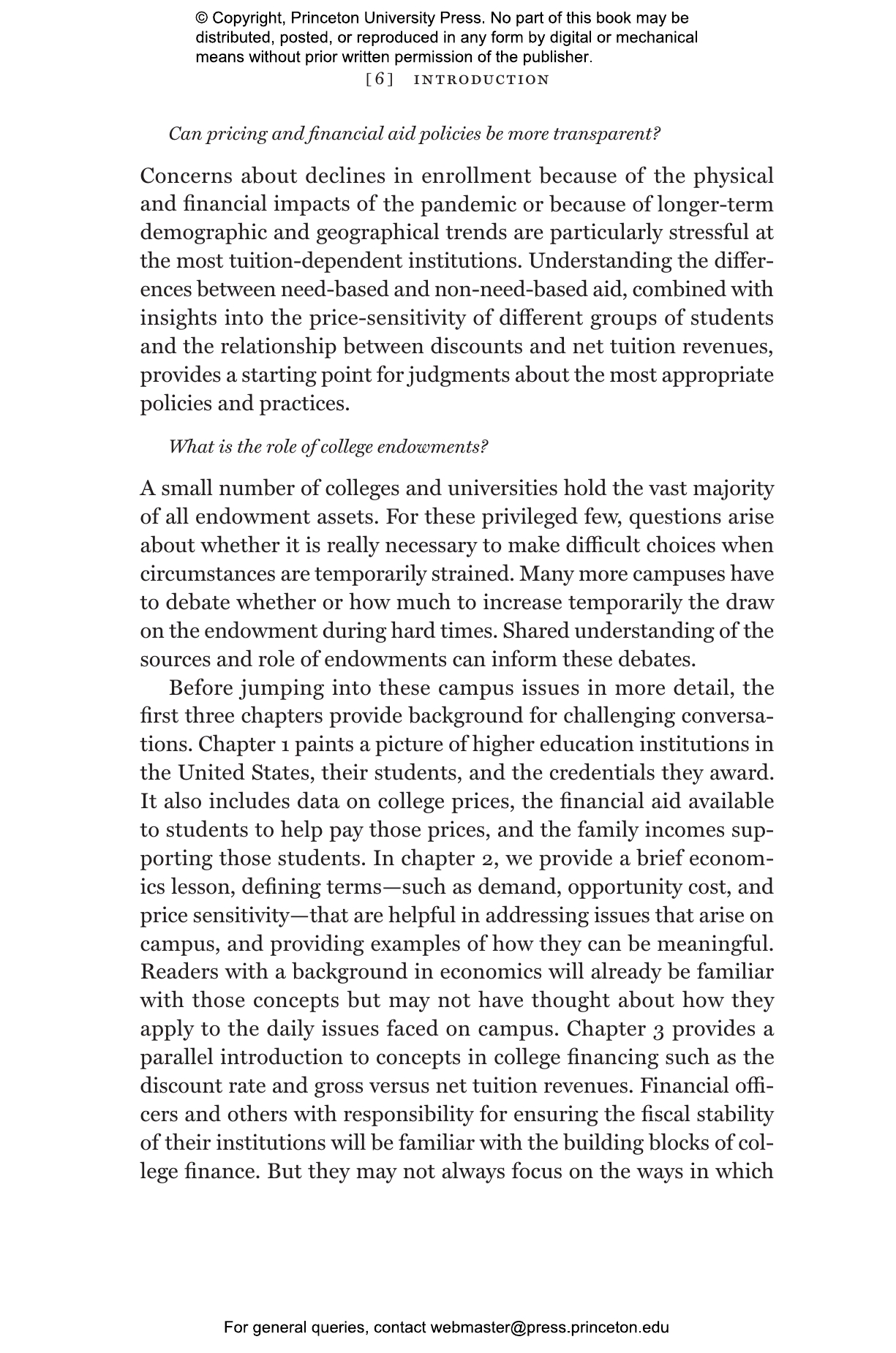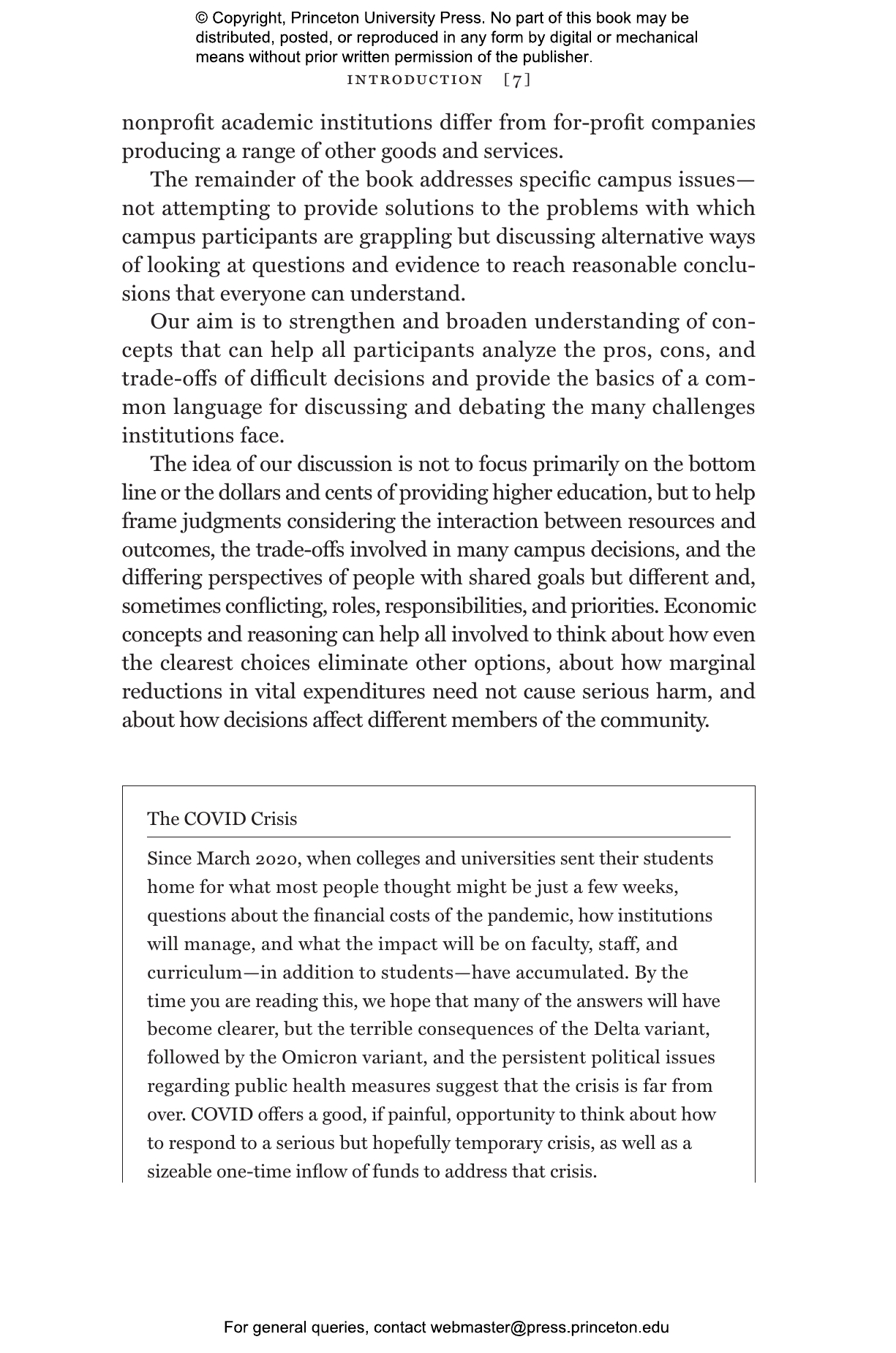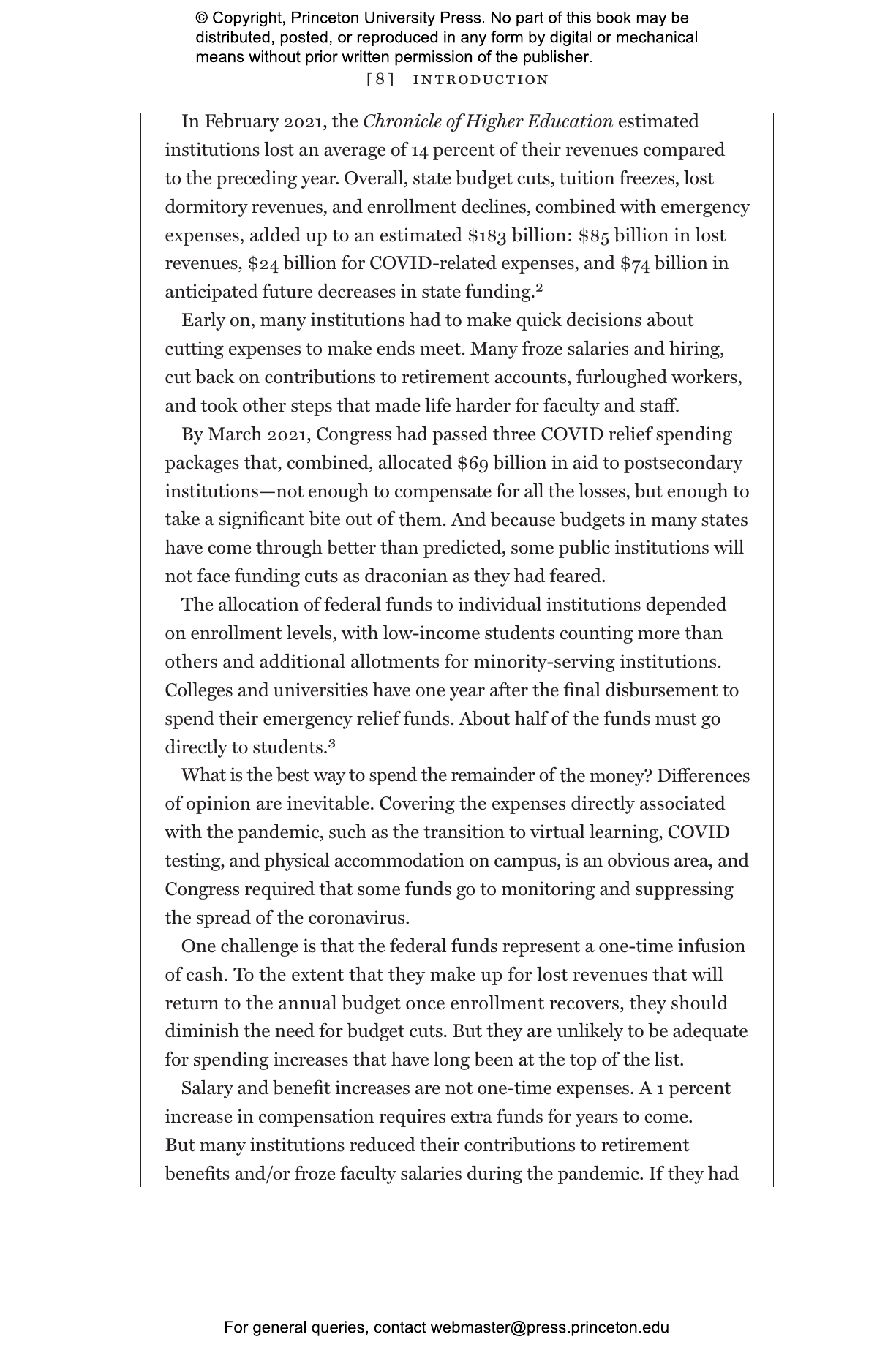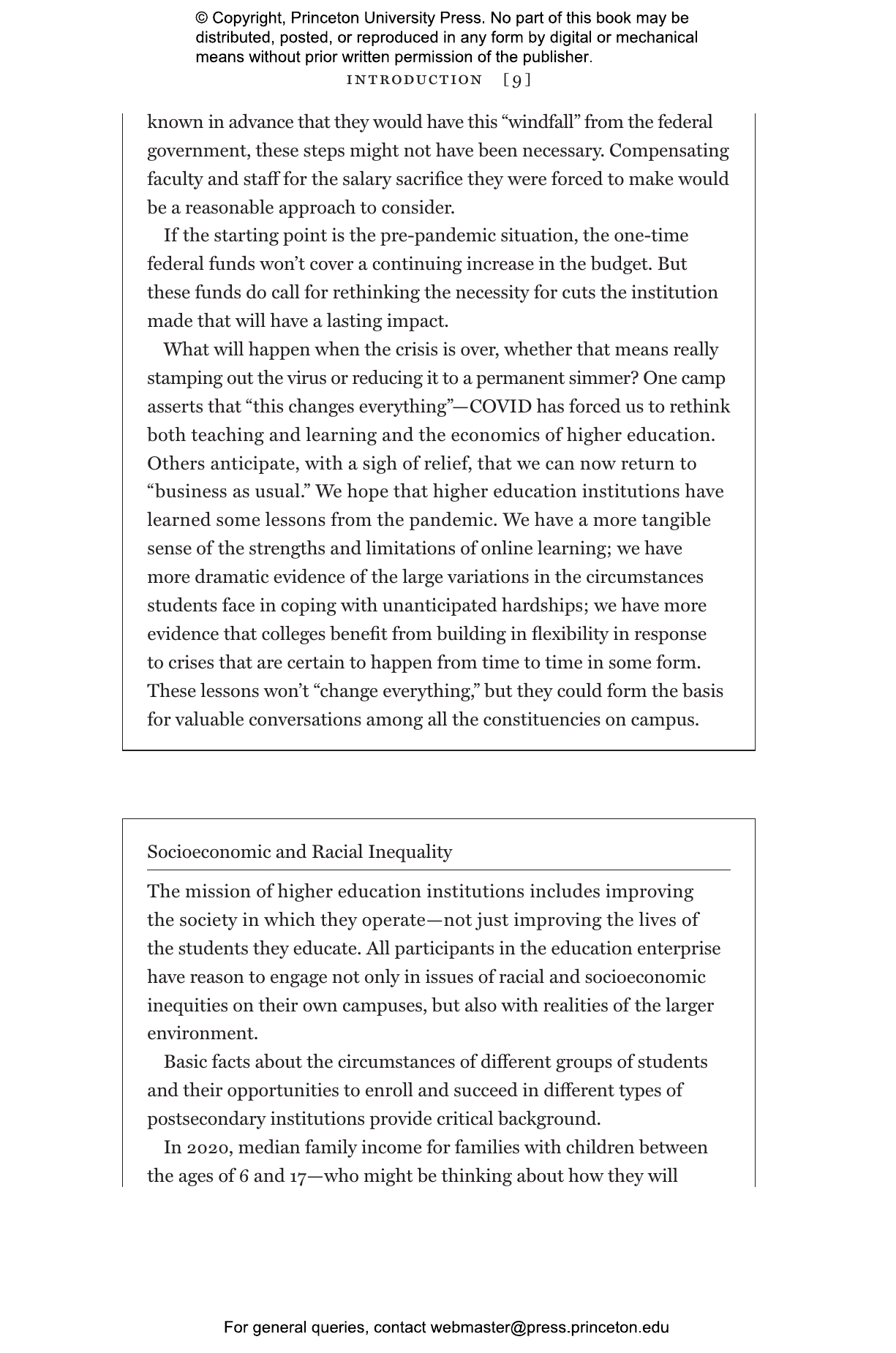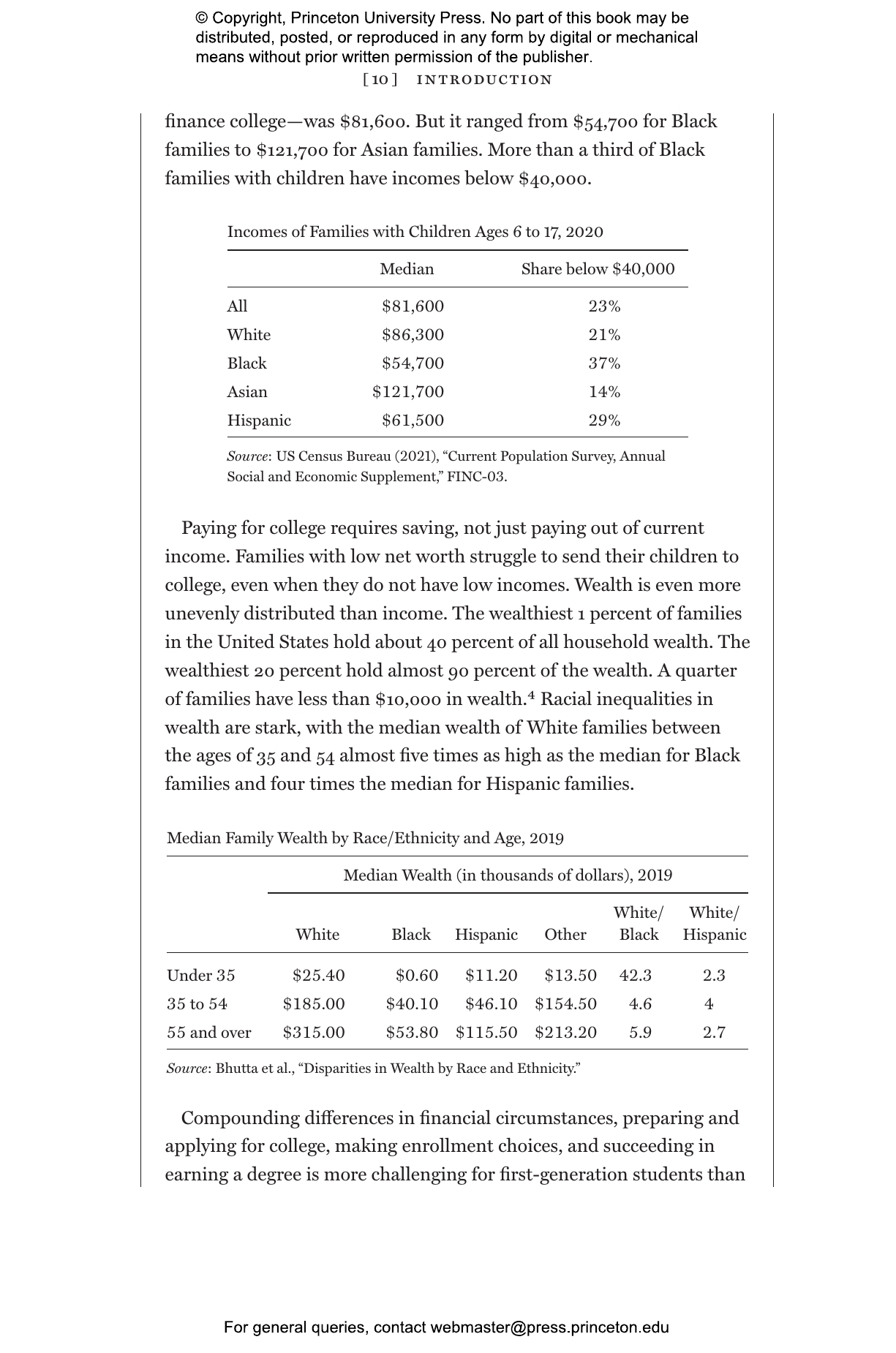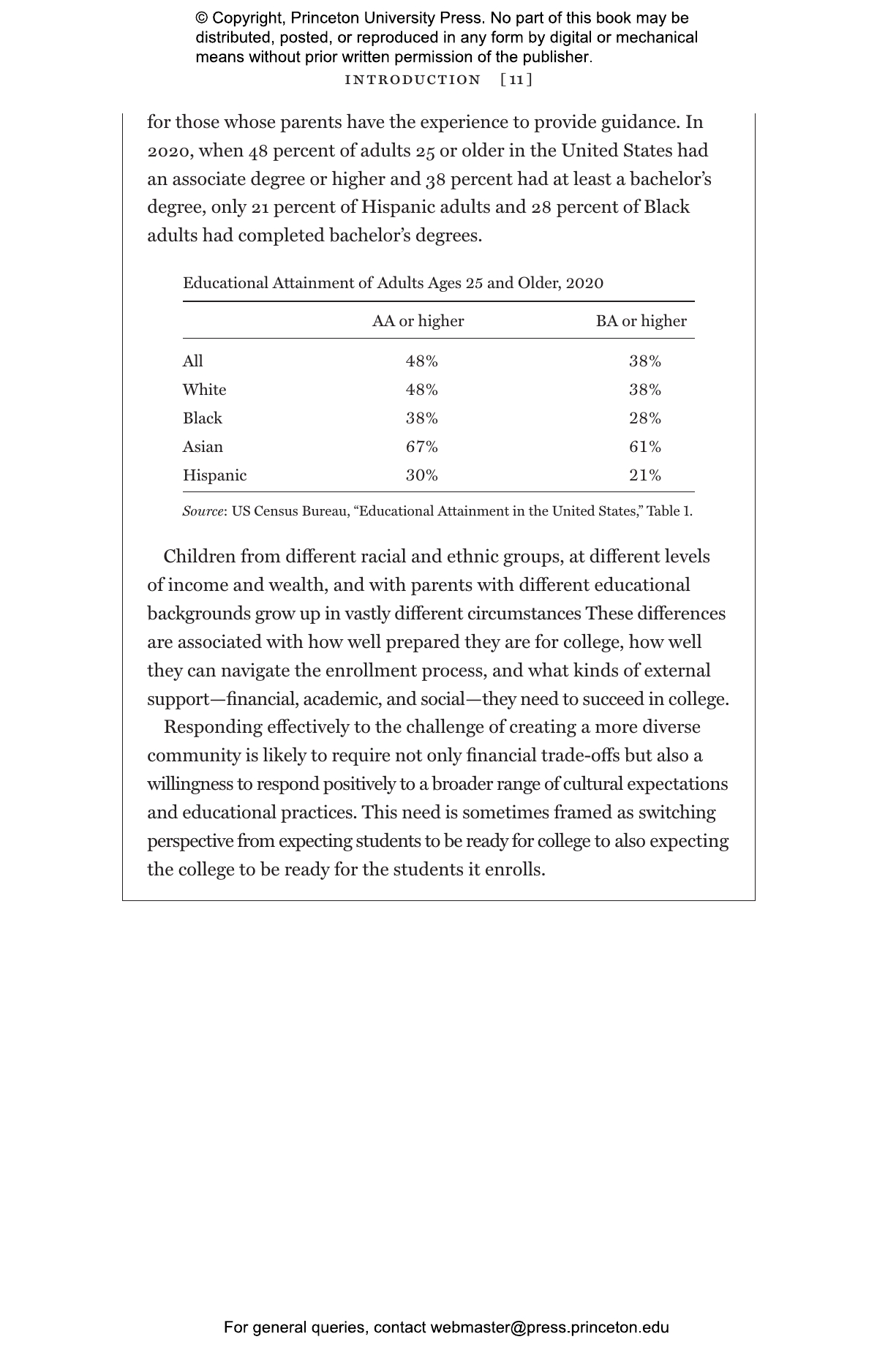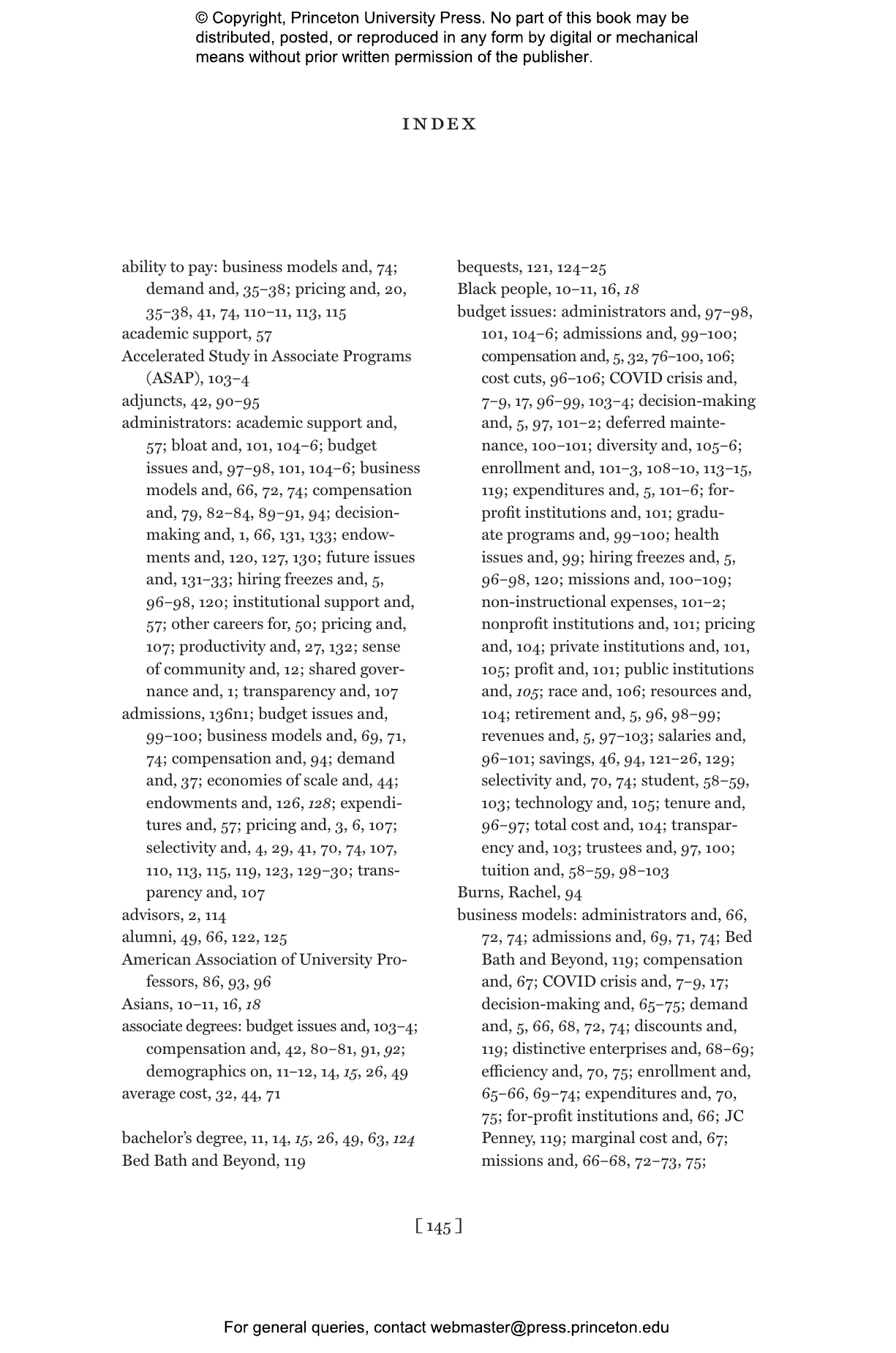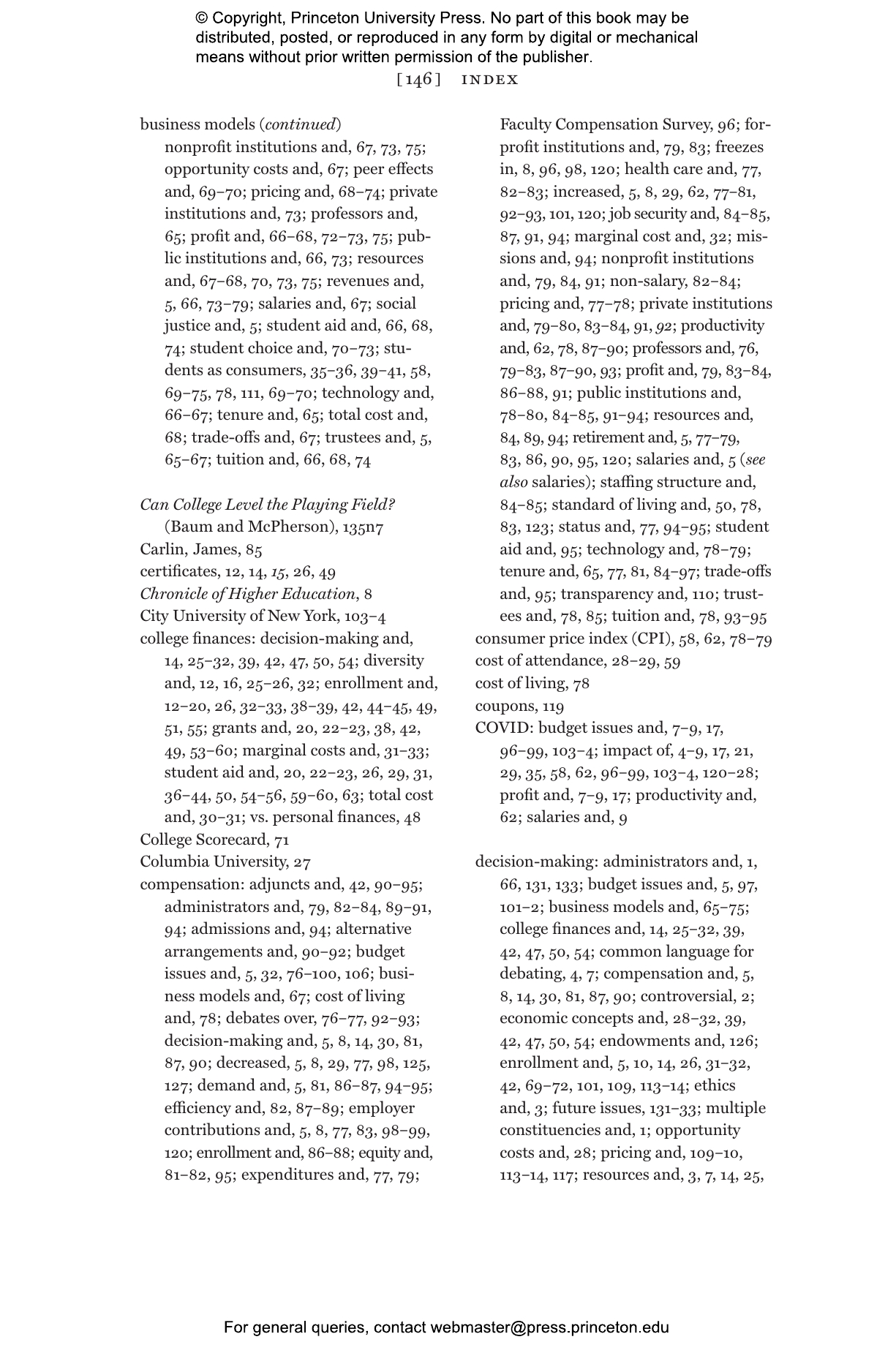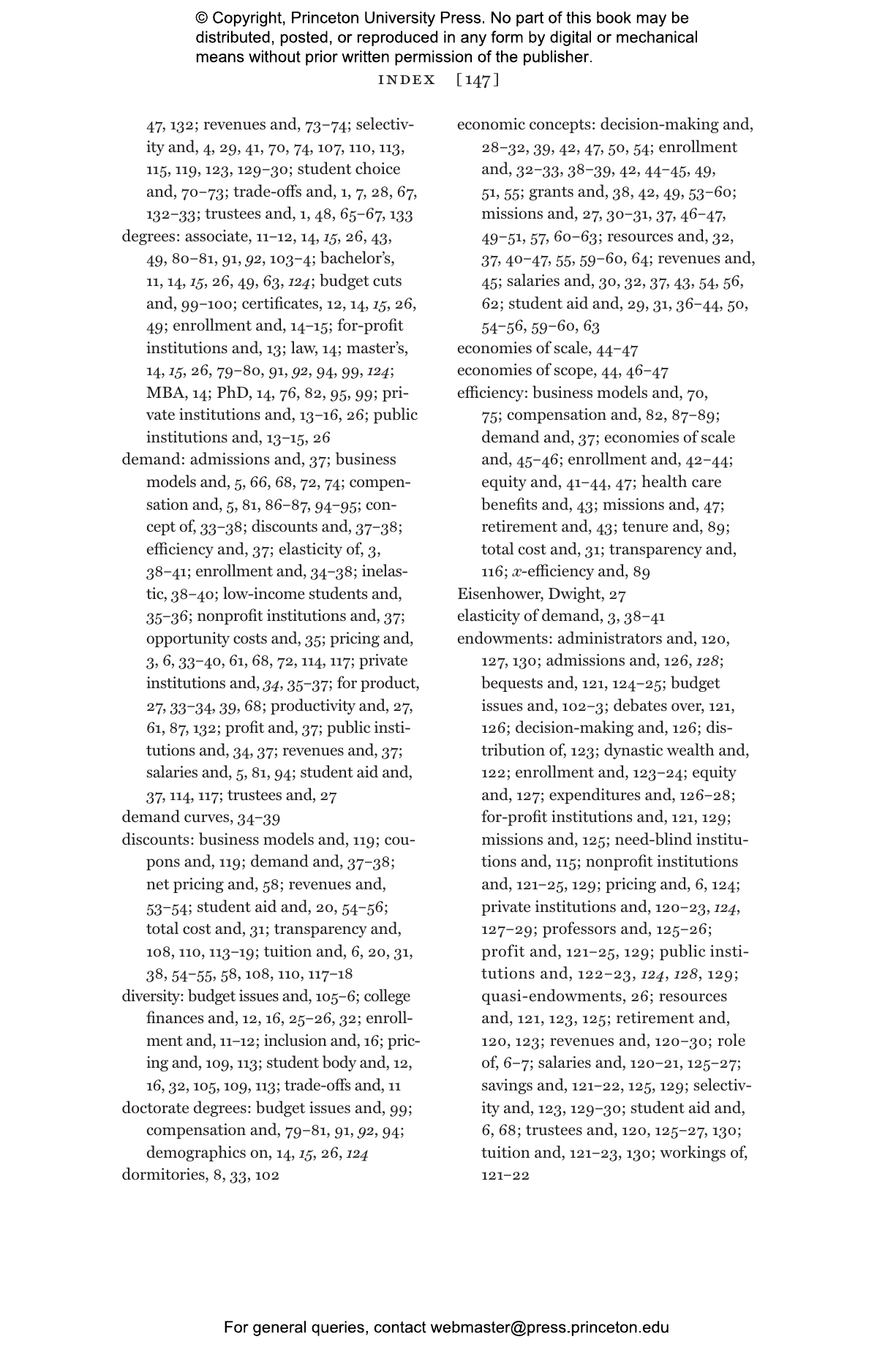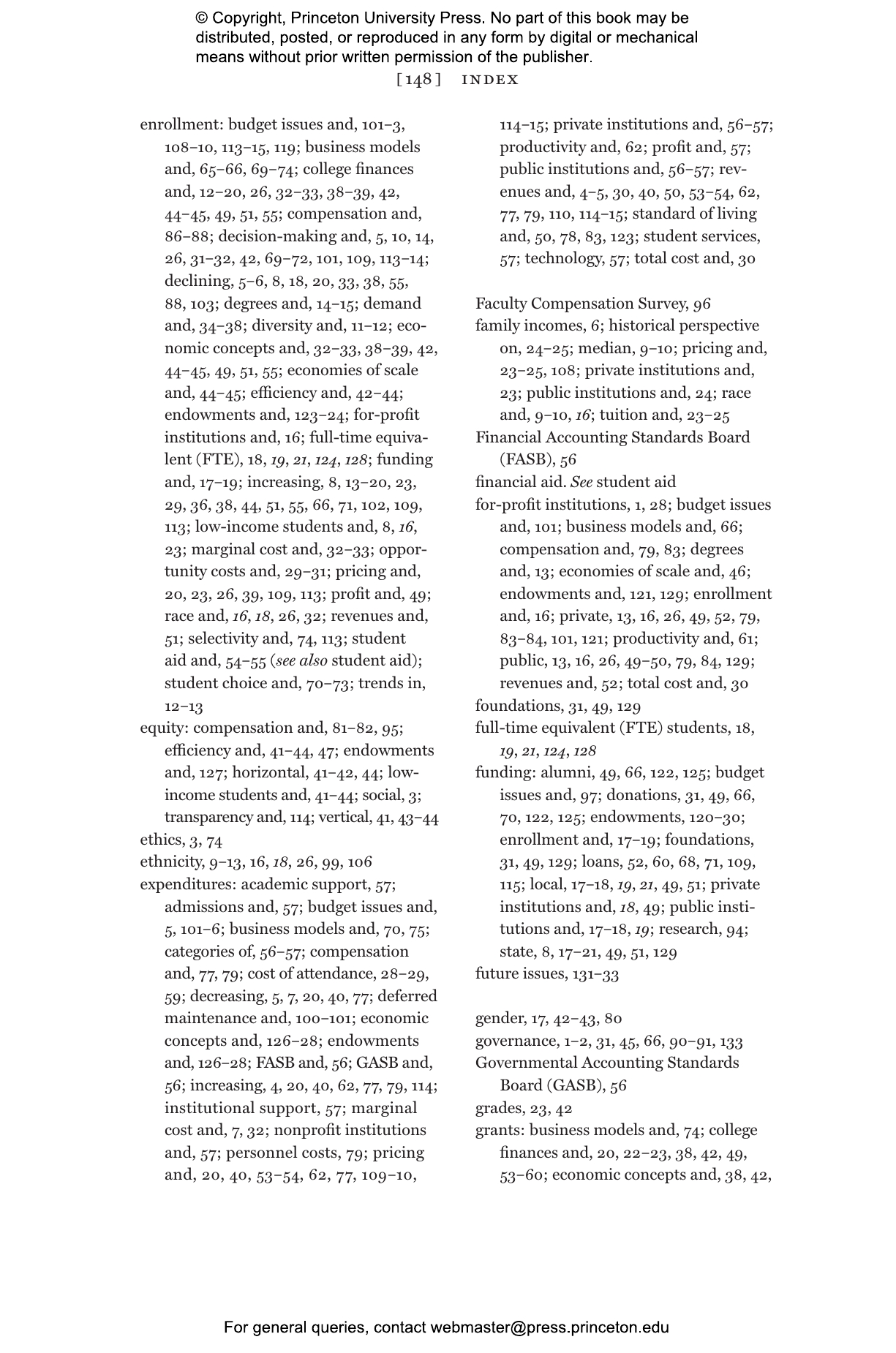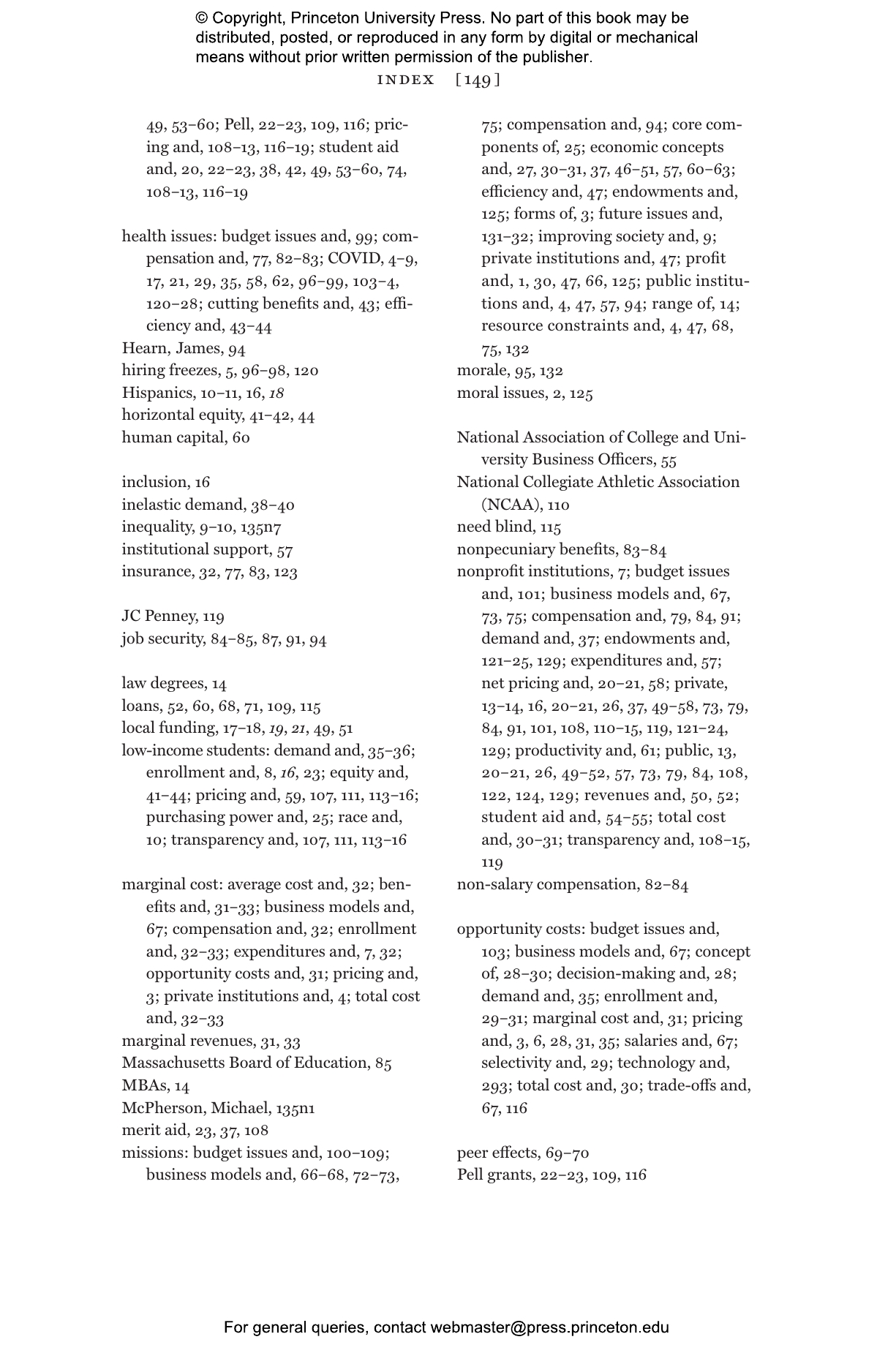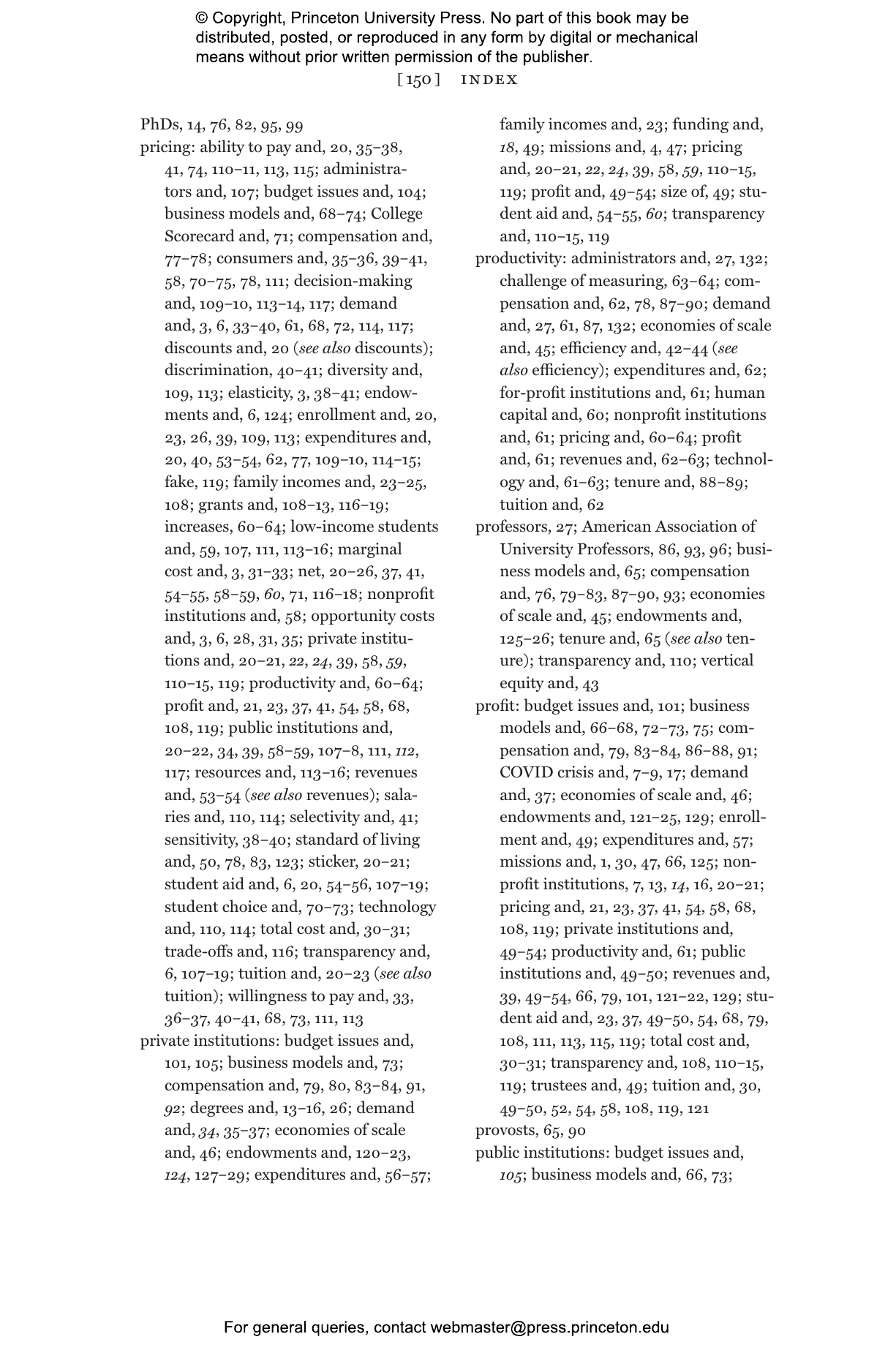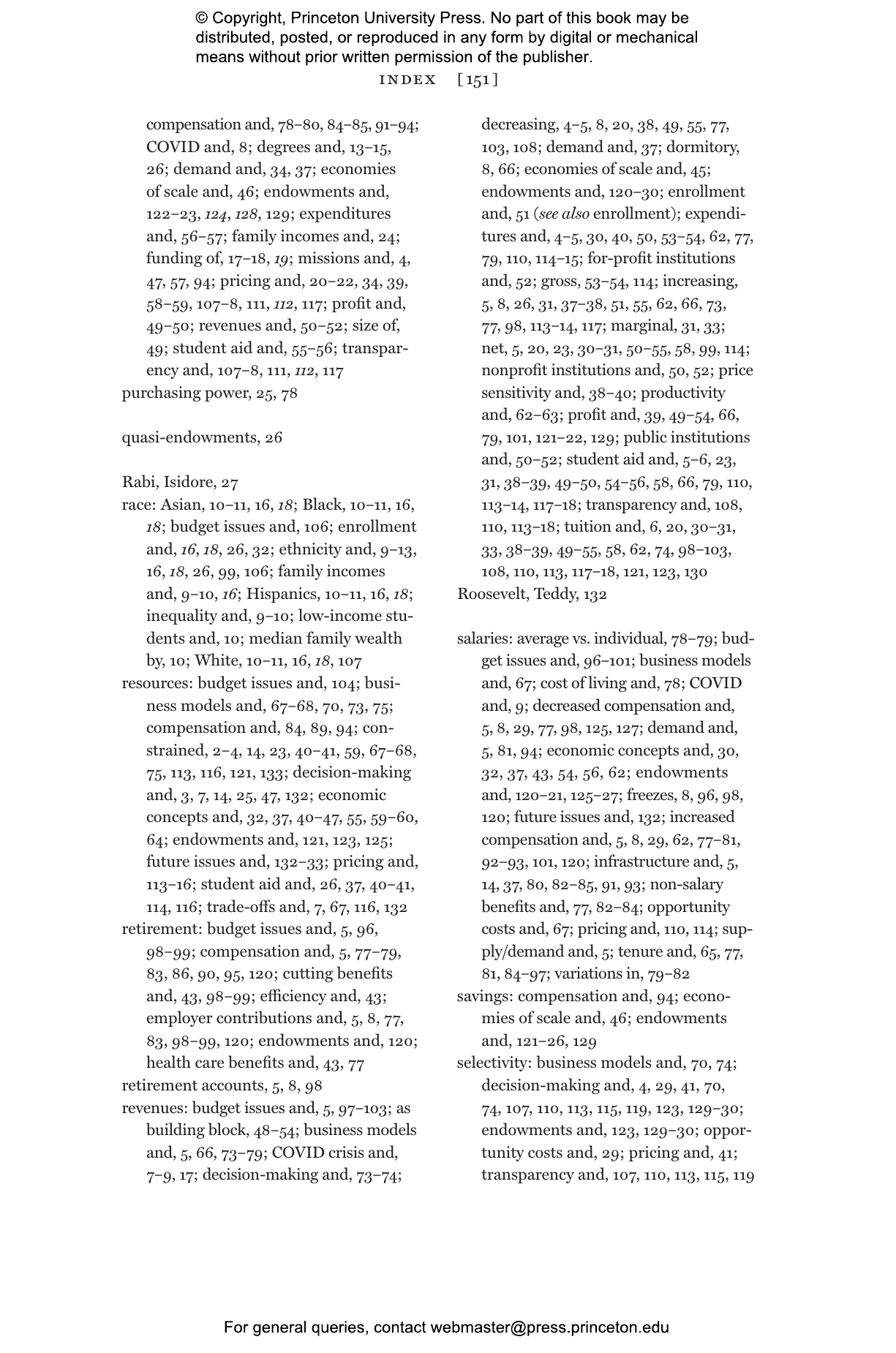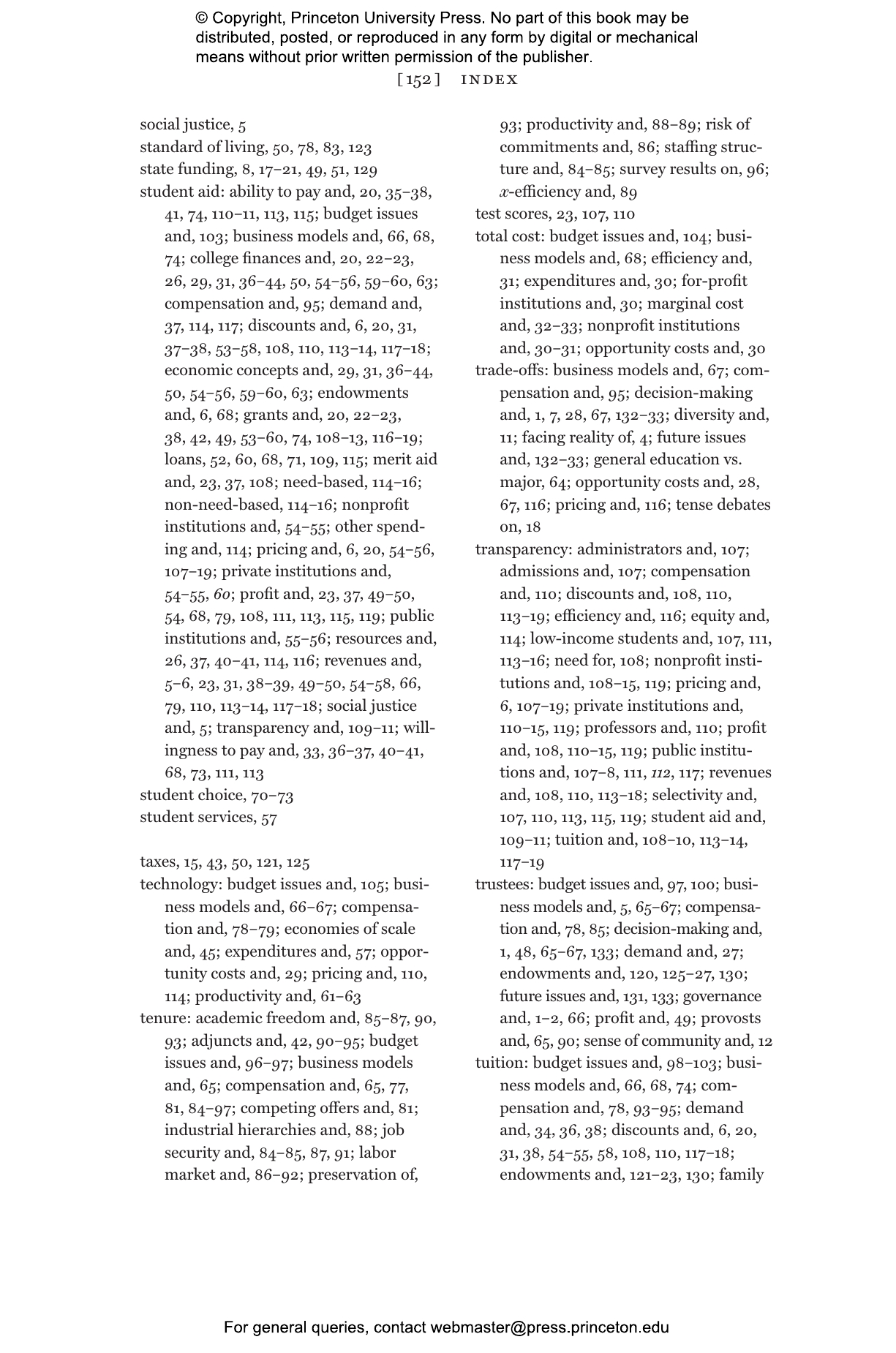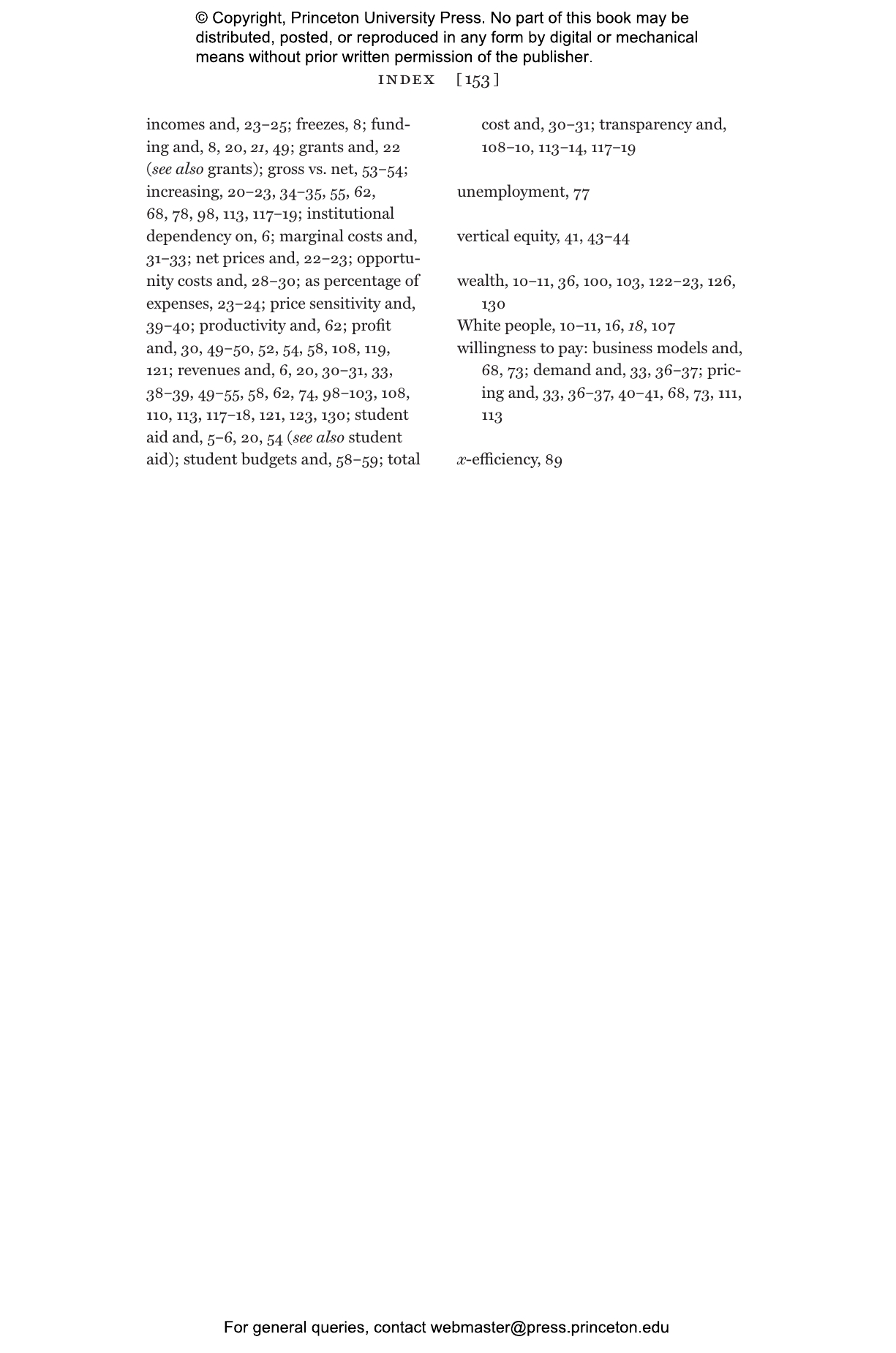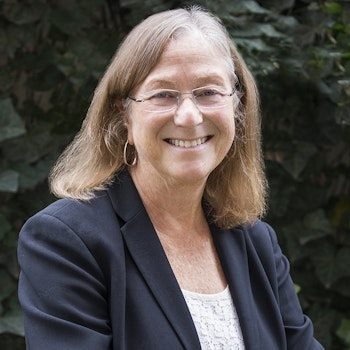Campus Economics provides college and university administrators, trustees, and faculty with an essential understanding of how college finances actually work. Sandy Baum and Michael McPherson explain the concepts needed to analyze the pros, the cons, and the trade-offs of difficult decisions, and offer a common language for discussing the many challenges confronting institutions of higher learning today, from COVID-19 to funding cuts and declining enrollments.
Emphasizing the unique characteristics of the academic enterprise and the primacy of the institutional mission, Baum and McPherson use economic concepts such as opportunity cost and decisions at the margin to facilitate conversations about how best to ensure an institution’s ongoing success. The problems facing higher education are more urgent than ever before, but the underlying issues are the same in good times and bad. Baum and McPherson give nontechnical, user-friendly guidance for navigating all kinds of economic conditions and draw on real-world examples of campus issues to illustrate both institutional constraints and untapped opportunities.
Campus Economics helps faculty, administrators, trustees, and government policymakers engage in constructive dialogue that can lead to decisions that align finite resources with the pursuit of the institutional mission.
Sandy Baum is a nonresident senior fellow at the Center on Education Data and Policy at the Urban Institute and professor emerita of economics at Skidmore College. Michael McPherson is president emeritus of the Spencer Foundation and Macalester College. They are the authors of Can College Level the Playing Field? Higher Education in an Unequal Society (Princeton).
"Economics may be the dismal science, but it provides essential language and concepts as we strive to balance needs, wants and resources."—Steven Mintz, Inside Higher Education
“Most colleges and universities have educational rather than economic missions, yet they must make difficult financial decisions. Baum and McPherson’s Campus Economics is a clear and excellent guide to using economic thinking to help make those decisions. It will prove helpful to those with and without a knowledge of economics.”—Thomas Bailey, president of Teachers College, Columbia University
“From opportunity cost to sticker prices, Sandy Baum and Michael McPherson’s concise book renders the sometimes inscrutable economics of higher education both comprehensible and compelling.”—Charles Clotfelter, Duke University
“Anyone involved in the complexities of higher education, and that means faculty, administrators, students, staff, alumni, donors, trustees, friends, critics, commentators, and policymakers, needs to read this primer—with plenty of sticky notes handy. Baum and McPherson, masters of the craft, offer wonderfully digestible nuggets of wisdom about the power (and limits) of economics applied to the preservation of our most hallowed institutions.”—Michael Feuer, George Washington University
“Economics is the science of hard decisions when there’s no optimal solution, only trade-offs. Baum and McPherson provide a powerful framework for discussing the vexing challenges facing higher education today: merit versus need-based aid, the appropriate uses of endowment funds, and others. I will be handing out copies of Campus Economics in my next senior faculty meeting.”—Thomas J. Kane, Harvard University
“Campus Economics should be required for all administrators, faculty, trustees, and anyone else who has an interest in understanding and contributing to the fiscal well-being of their campus. The useful concepts and practical case studies will help minimize harmful misunderstandings between offices and departments and more importantly, create a shared language and framework to address the difficult complexities around financial decision making in higher education.”—Francesca Purcell, Harvard University
